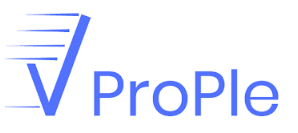This website use cookies to help you have a superior and more relevant browsing experience on the website.
Remote Interviews Unveiled: Challenges, Innovations and Best Practices
-
09/09/2024

It is hard to deny the increasing popularity of remote interviews in today’s rapidly evolving digital landscape. With more and more companies replacing traditional interviews with virtual interviews, it is very clear that video interviews are here to stay and are the future of the hiring process.This article delves into the emergence of remote interviews. Here, we will also discuss the problems with online interviews and innovations in remote interviewing. So, let us get started!
Understanding the Emergence of Remote Interviews
The time when all job interviews required in-person meetings is long past. Piles of resumes to screen and numerous rounds of face-to-face interviews were all a part of the traditional hiring process. Although successful, this approach has its own set of challenges. For instance, candidates frequently find it difficult to come to a new city for face-to-face interviews, especially when they live far away.Moreover, companies face many challenges when they follow the standard or traditional hiring process to attract top talent in the modern recruitment landscape. That is why many companies think that using technology for interviews is essential to find, attract and hire qualified candidates and get ahead of the competitors.
Did you know? According to a new study, post-pandemic, nine in 10 companies still prefer conducting remote interviews. |
In this case, remote interviews emerged as a groundbreaking solution to overcome the traditional hiring challenges. Today, employers and hiring managers are using online video interview platforms to connect with candidates from all over the world. Not only do these interviews offer more flexibility in scheduling, but they also remove the geographical barriers that used to limit the talent acquisition process in the past.Related: Virtual Interviews vs. Traditional Interviews
Remote Interview Challenges and Solutions
While remote interviews have transformed the recruiting process, they are not without their challenges. It is essential for both applicants and hiring managers to be aware of these problems with online interviews and look for effective solutions to ensure a seamless remote interview experience.
Technical difficulties
Technical inconsistencies are one of the most common remote interview challenges. Factors such as weak internet connections, software glitches and audio and video malfunctions can disrupt the flow of an interview.Solution: Employers and candidates can overcome such technical challenges by testing their equipment in advance and finding an alternative method of communication if needed. Doing so will ensure that they are prepared to navigate the technical difficulties that may arise.
Problems in Communication
Another remote interview challenge is the potential for miscommunication or misinterpretation. Solution: Candidates and employers can overcome this challenge by focusing on transparent and straightforward communication, speaking slowly and maintaining concise body language.In the same way, they must practice active listening and being thoughtful. Remote interviews can be the same as in-person interviews if candidates and employers enhance their communication skills.
Maintaining Professionalism
A final drawback of remote interviews can be maintaining professionalism in a virtual environment. Solution: If candidates and employers approach a virtual interview with the same professionalism they would bring to an in-person interview, they can effectively overcome this challenge.By dressing professionally, maintaining a good posture and ensuring the surroundings are organized, employers and candidates can present themselves professionally and leave a lasting impression.
The Innovation in Remote Interviewing
In addition to the rise in the popularity of remote interviews, AI technology has made its way into the hiring and interviewing process. The recruitment industry has recently witnessed many significant technological advances in remote interviews that have helped them increase productivity and efficiency across numerous corporate operations.Earlier, employers only had the option to use video conferencing tools such as Skype, Teams and Zoom to conduct remote interviews. But today, the times have changed, and technology has transformed. Many companies today use specialized platforms and software that are specifically designed to streamline the remote interviewing process in hiring.Companies can also outsource their technical interviews to interview outsourcing companies that have their own interview as a service platform. Such platforms use the power of AI to interview candidates and evaluate their skills through assessments. With an AI-powered interview as a service platform, companies can now be stress-free regarding their candidate interviewing process and hiring the best talent. Also Read: Why Companies are Investing in Interview Services to Improve Candidate Experience
Conclusion
Now, you must have understood that remote interviewing technologies help hiring managers and companies streamline recruitment and focus on other priority activities like maintaining social relationships with active and passive candidates. If you also want to hire the best talent from the large pool, you must keep up with the current HR trends and market needs in the recruitment world. And guess what? VProple’s interview as a service platform can help you do so! All you need to do is inform us about your interviewing needs and add the candidate profiles. We will use our advanced interview as a service platform to interview the candidates on your behalf and find the ones that best align with your requirements. Contact us today to learn more about how our interview outsourcing company can help you streamline your interviewing and hiring operations!Frequently Asked Questions (FAQs)
Q1- What is remote interviewing?
Ans. Remote interviews are interviews conducted virtually using video conferences, usually when an employer and an applicant are in different locations. Companies generally conduct remote interviews to evaluate applicants during the initial hiring stages.
Q2- Is remote interviewing better than in-person interviewing?
Ans. Yes! Due to their flexibility and convenience, remote or virtual interviews are a great choice for both employers and applicants. If you are an employer that only conducts in-person interviews, you are likely missing out on some of the best candidates. Therefore, you must expand your talent pool by offering remote interview options to candidates.
Q3- What is the meaning of an interview as a service?
Ans. Interview as a Service is when companies outsource technical interviews to interview outsourcing companies. The people who work in the interview outsourcing companies (interviewers) are skilled professionals who conduct remote interviews and thorough technical assessments on behalf of companies.Simply put, they use the interview as a service platform to conduct interviews with multiple candidates, evaluate them, provide detailed feedback and ultimately streamline the hiring process for companies. Related: The Changing Landscape of Hiring with Interview-as-a-Service


